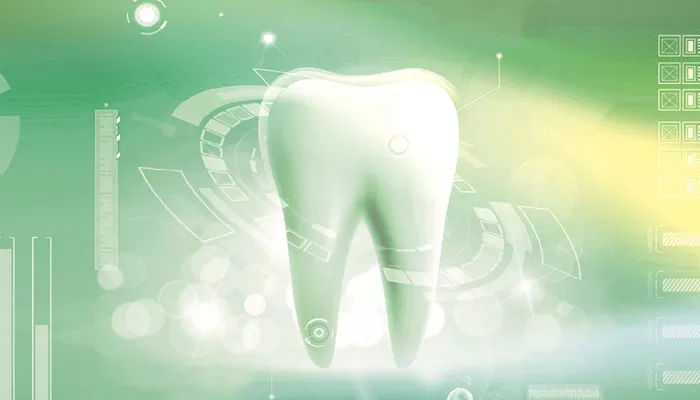Teeth whitening is a popular cosmetic dental procedure aimed at enhancing the brightness of teeth. However, one critical aspect that can significantly affect the outcome of the whitening process is keeping the teeth dry. Moisture can interfere with the effectiveness of whitening agents, leading to suboptimal results. This article outlines various methods to ensure teeth remain dry during whitening procedures, providing detailed guidance for dental professionals and patients alike.
Understanding The Importance of Dry Teeth in Whitening
When teeth are exposed to whitening agents, such as hydrogen peroxide or carbamide peroxide, moisture can dilute these agents, reducing their effectiveness. Additionally, saliva can inactivate the bleaching agents, preventing them from penetrating the enamel effectively. Therefore, maintaining a dry environment is crucial for achieving optimal whitening results.
Methods to Keep Teeth Dry During Whitening
1. Preparation Before Whitening
A. Patient Instructions
Avoid Eating or Drinking: Instruct patients to refrain from consuming food or beverages for at least an hour before their appointment. This helps minimize saliva production and keeps the mouth drier.
Oral Hygiene: Encourage patients to brush and floss their teeth thoroughly before arriving. This removes plaque and debris that could retain moisture.
SEE ALSO: How Much Is Teeth Whitening in Mexico?
B. Equipment Setup
Use of Dental Dams: Employ rubber dams or similar barriers to isolate the teeth being treated. This prevents saliva from contaminating the whitening area.
Suction Devices: Utilize high-volume suction devices to remove saliva and moisture from the mouth during the procedure.
2. Drying Techniques During Whitening
A. Air Drying
Air Syringe Use: Use an air syringe to blow air directly onto the teeth.
This method effectively evaporates moisture from the tooth surfaces.
Breath Control: Instruct patients to breathe through their mouths and avoid swallowing during the application process.
B. Towel Technique
Wipe with a Cloth: Use a clean, dry cloth or gauze to gently blot the teeth before applying the whitening agent. This removes any surface moisture.
3. Application of Whitening Agents
A. Timing and Technique
Quick Application: Apply the whitening gel promptly after drying the teeth to minimize moisture reabsorption.
Layering Method: Consider applying multiple thin layers of whitening gel rather than one thick layer, allowing for better adherence and less moisture interference.
Post-Whitening Care
After completing the whitening procedure, it is essential to provide patients with care instructions to maintain their results and protect their teeth from dehydration.
1. Hydration Recommendations
Encourage patients to drink plenty of water post-treatment to help rehydrate their teeth naturally.
Advise against consuming staining foods and beverages for at least 24 hours after treatment.
2. Fluoride Treatments
Recommend fluoride treatments post-whitening to help restore minerals lost during the bleaching process and strengthen enamel.
Conclusion
Maintaining dryness during teeth whitening is fundamental for achieving optimal results. By implementing effective preparation techniques, utilizing appropriate drying methods during application, and providing post-treatment care instructions, dental professionals can enhance patient satisfaction and ensure successful whitening outcomes.
Incorporating these strategies into your practice will not only improve the efficacy of whitening procedures but also contribute positively to overall patient experience and oral health outcomes.
FAQs
1. How does hydrogen peroxide affect tooth hydration during whitening?
Hydrogen peroxide is the most commonly used active agent in tooth whitening treatments. It works by penetrating the enamel and breaking down into reactive oxygen molecules that oxidize stains. However, this chemical process can lead to temporary dehydration of the teeth. Hydrogen peroxide dehydrates the tooth surface by removing water from the enamel and dentin, causing the teeth to appear whiter. This loss of moisture can increase the tooth’s porosity, making it more susceptible to temporary sensitivity. Although teeth rehydrate naturally over time through saliva exposure, the dehydration caused by hydrogen peroxide can make the tooth structure more vulnerable during the whitening process.
2. Can saliva help in keeping teeth hydrated during whitening treatments?
Yes, saliva plays a crucial role in keeping teeth hydrated during and after whitening treatments. Saliva contains water, enzymes, proteins, and minerals that help maintain oral health and protect the teeth.
During whitening, the teeth may lose moisture due to the active bleaching agents like hydrogen peroxide, which can cause temporary dehydration. Saliva helps counteract this by replenishing moisture and aiding in the rehydration process. It also helps maintain a neutral pH in the mouth, which is essential for preventing acid damage and promoting remineralization of the teeth. While saliva can help with hydration, it is not enough to fully offset the dehydration caused by whitening treatments, and additional rehydration time is necessary after the procedure.
3. What are the risks of not keeping teeth dry during whitening?
While dehydration of the teeth is a common part of the whitening process, not keeping the teeth dry during the application of the whitening agent can reduce the efficacy of the treatment. Here are the key risks:
Dilution of the whitening gel: If the teeth are not adequately dried before the application of the whitening agent, excess saliva or moisture on the teeth can dilute the hydrogen peroxide concentration, leading to less effective results.
Reduced penetration of bleaching agents: Moisture on the tooth surface can act as a barrier, preventing the whitening agents from penetrating deeply into the enamel and dentin. This can result in uneven or incomplete whitening.
Increased risk of gum irritation: Excess moisture may cause the whitening gel to spread beyond the teeth to the gums, leading to irritation or chemical burns in the soft tissues.
Keeping the teeth dry before applying the whitening agent ensures that the treatment works efficiently and avoids potential discomfort or irritation. After treatment, allowing the teeth to naturally rehydrate is crucial for reducing any temporary sensitivity.
Related topics:

